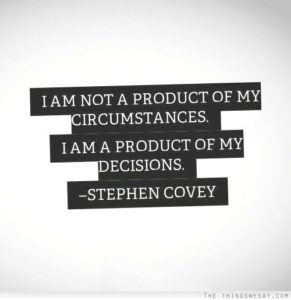Breaking porn addiction is not an easy process. Various emotions come up and old habits are hard to let go of. No matter how hard it may seem, it is possible to overcome and heal from your addiction.

As with stopping any addiction, you’ll need to take time and establish new habits. People can get pulled deeper into their addictions due to boredom, anger, loneliness, depression,and other various emotions. The key is to find other ways to deal with your triggers, and develop new routines, or habits, to support you in your healing.
“Rock bottom became the solid foundation on which I rebuilt my life.” — JK Rowling
Quitting porn, especially cold turkey, is hard and a process where you’re going to have to rely on various tools and resources to help you throughout the whole approach. One of the first things we recommend is installing a software to block porn on your computer and phone. There are many apps and software programs out there, such as Covenant Eyes and Net Nanny, to look at and see which one best fits your needs and budget.
During this time it’s also important to establish boundaries. Boundaries are essential to set for yourself so you can decide what your limits are and what compromises you’re not willing to make. By taking time to determine your boundaries, you can use these lines to help you in your road to recovery. An example of a boundary you might set for yourself is not getting on the computer during dinner, but instead spending that time with your family. Another might be no longer hiding somewhere to use the computer, but to use it in the open where you won’t be tempted to view porn.
While you determine and set your boundaries, consider them for all the areas in your life: physical, emotional, mental, and spiritual. This is also a good time to share these boundaries with your spouse so they can help you hold yourself accountable.
Once you’ve made the commitment to yourself and your family to quit porn, create a “toolbox”—a kind of first aid kit—that you can access easily when you need some reinforcement and inspiration to keep going in your recovery.
Some tools add to your toolbox? Here are 5 suggestions:
1. Write a letter to yourself.
 You’re going to have good and bad days in your recovery (that’s part of life) and, because of that, having a reminder to why you started this journey and why you want to see it all the way through is crucial. Sit down and write yourself a letter, add pictures of happier times, your spouse and family, and any other images (your Higher Power, a beautiful landscape, or whatever speaks to you) to help you stay focused and continue down this path.
You’re going to have good and bad days in your recovery (that’s part of life) and, because of that, having a reminder to why you started this journey and why you want to see it all the way through is crucial. Sit down and write yourself a letter, add pictures of happier times, your spouse and family, and any other images (your Higher Power, a beautiful landscape, or whatever speaks to you) to help you stay focused and continue down this path.
While you write this letter, keep the tone persuasive and remind yourself of all the positives into seeing this process through.
2. Three-second rule.
“Respect yourself to walk away from anything that no longer serves you, grows you, or makes you happy.” – Robert Tew
One of the hardest things people face when developing new habits is managing their thoughts. This is a tricky process because, as human beings, negative thoughts are usually the primary thoughts we have. While you may not have the power to control your environment, you have the power to manage your thoughts. Because of this, we recommend practicing positive affirmations when you first get up, before bed, and throughout the day.
However, we also know that practicing daily affirmations and executing on them when things spin out of control is easier said than done. To help you establish better habits, when you feel a trigger has been set off inside you (or even before) take a moment to practice the three-second rule to replace with help you let go of the negative thought and embrace a more positive one.
How it works: First, recognize that you’ve been involuntarily triggered. Next, look away and don’t look back. Third, distract yourself by choosing a more positive, healthier thought. You might think of a happy family memory, repeat a positive mantra or affirmation, or call a trusted friend.
As you begin to practice this technique, remember, it takes time to change your thoughts. But the important thing to keep in mind is to keep practicing. Maybe the first time only last for a few seconds, maybe a minute, but over time, this will become more natural for you.
3. Positive Affirmations.
Speaking of positive thoughts, as you move forward in your recovery, we strongly recommend having 1-2 positive affirmations you can repeat to yourself. These affirmations can help to boost your self confidence and remind you to stay true in your healing.

Here are a few mantras you can start practicing today or write some of your own to start repeating to yourself.
- I accept myself even though I sometimes make mistakes.
- I strive to improve myself.
- I am worth loving. There is love all around me.
- I forgive myself and set myself free.
- I am a capable person, and I can handle anything that comes my way.
- I have the strength and determination to prevail any obstacle that comes my way.
In addition to practicing positive affirmations, another excellent practice to incorporate in your daily routine is what Julia Cameron refers to as “morning pages.” In her book, The Artist’s Way, she describes this process as something you should do every morning, before you get out of bed. The purpose of these pages is to dump all the junk thoughts running in your mind out so you can focus on moving forward in your healing and discover more about yourself so you can begin to develop new habits and become the person you want to be.
How are morning pages done? It’s simple. Each morning, grab a pen and notebook (ideally, keep these items on your nightstand) and write 3 full pages, without stopping. The idea behind the pages is not to stop because you don’t want to think about them, just let things come out. You might be surprised to discover what comes out during your writings.
4. Be a sport.
 We all know how good exercise is for your body and mind, but exercise is also a great way to distract yourself when you’re feeling vulnerable or tempted to return to viewing pornography. Exercise, such as yoga, kickboxing, hiking, biking, and any other activity is a great and healthy way to release endorphin’s which can make you feel better (both physically and emotionally), fights depression and anxiety, reduces stress, along with many other benefits.
We all know how good exercise is for your body and mind, but exercise is also a great way to distract yourself when you’re feeling vulnerable or tempted to return to viewing pornography. Exercise, such as yoga, kickboxing, hiking, biking, and any other activity is a great and healthy way to release endorphin’s which can make you feel better (both physically and emotionally), fights depression and anxiety, reduces stress, along with many other benefits.
As you move forward in your healing, schedule regular exercise into your daily routine to assist you in road to recovery. This doesn’t have to be some big thing, instead take a brisk walk around your neighborhood, set up a punching bag in your garage or basement, sign up for a weekly yoga class, or pump iron at the gym after work. The key is to find something that allows you to feel more energetic and alert, releasing endorphins and creating a natural, more healthy, high that makes you feel better about yourself.
5. Find the humor.
“There is nothing in the world so irresistibly contagious as laughter and good humor.” — Charles Dickens
Life can get pretty serious every now and again, and because of this, finding a way to release the stress in a fun way is important to your overall well-being. Humor is also a natural painkiller, helping to lower stress and keep you from slipping back down the path towards pornography. If you’re feeling vulnerable, turn to something humorous to help you take the edge off your compulsive desires. Read a humorous book, watch your favorite comedian, or watching a funny movie are all great way to help you “laugh it off” and smile again.
Some fun sites to visit: Check out 1Funny.com for some good, clean fun.
Recovery is not an easy process. Each day you have to recommit to your healing by reminding yourself why you are on this journey. A therapist or support group, along with the tools in your toolbox, can help you throughout your healing.
For more tips and insights to help you in your recovery, take a moment to download our free ebook, The First Step: Taking The First Step Toward Recovery.
Photo via The Things We Say
